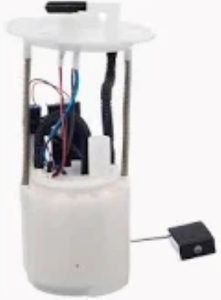To test a fuel pump, there is a special set of tools that will measure pressure, electrical function, and overall efficiency. One of the most vital tools for this is a fuel pressure gauge, which can directly measure the pressure of the fuel system. For most conventional fuel pumps, operation at any point between 40 and 60 PSI should be within specification, and any reading outside this range might show potential problems. Fuel pressure gauges may vary in price, but for accuracy and strength, this can be anywhere between $20 to $100. Most automotive stores will have high-quality fuel pressure gauges.
A multimeter is also needed for the electrical checks of the fuel pump, which measure voltage and continuity and help in knowing whether the pump is getting the correct 12-volt power feeding. If the multimeter shows less than 12 volts, it means there might be some wiring problem or a failing pump. Multimeters come in automotive models costing between $20 and $50, invaluable for tracing electrical problems.

Where a more precise diagnosis needs to be found, the current draw can be measured with an amp clamp or current probe. Generally speaking, a good fuel pump operates in a given range, often from 4 to 8 amps on a standard vehicle. Outside of this could mean the pump works inefficiently, or is drawing excessive current due to some inside blockage or wear. Precision depending, amp clamps are available from $40-150 dollars and can offer a detailed look at the pump's electrical demand.
It does essentially the same thing an OBD-II scanner does, adds to the information by pulling diagnostic trouble codes related to the fuel system. Fault codes, like P0087 for low fuel pressure and P0230 for fuel pump primary circuit malfunction, will give information on what particular problem there is in fuel delivery. While simple OBD-II scanners start at $30, professional ones are over $100.
Another critical component of the fuel system is the fuel pressure regulator, the efficiency of which can also be tested with the use of a hand vacuum pump. The performance and pressure output of the pump would, therefore, also depend upon the working of the regulator. Hand-operated vacuum pumps are simple means of ensuring that the pressure regulator works as it was meant to. Prices of hand-operated vacuum pumps start from around $15 and go up to $50.
With these tools at hand, very extensive and correct testing of the Fuel Pump will be assured for fuel delivery, with early detection of problems that would hamper proper vehicle performance.